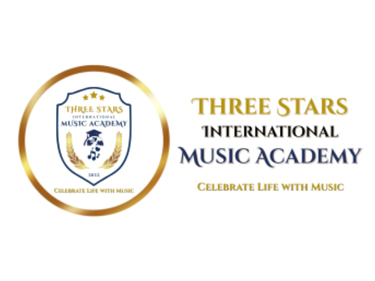
“Am I Too Old to Learn Music?” — Why It’s Never Too Late to Start
Have you ever thought to yourself, “I wish I had learned an instrument as a kid…” Or “I love music, but I’m too old to start now.”
Sugander Santhapuri
4/23/20253 min read


Introduction
Have you ever found yourself tapping along to a melody, dreaming of playing an instrument, but hesitated with the thought, "Am I too old to learn music?" This question echoes in the minds of many adults who harbor a latent passion for music. The truth is, age is no barrier to musical exploration. Whether you're 30, 50, or 70, embarking on a musical journey can be both fulfilling and transformative.
Watch these two interesting YouTube Videos:
Debunking the Myth: "It's Too Late to Start"
The notion that musical aptitude is reserved for the young is a widespread misconception. While it's true that children often have more flexible schedules and fewer inhibitions, adults bring a wealth of advantages to the learning process:
Discipline and Focus: Adults often have better concentration and self-discipline, aiding consistent practice.
Emotional Depth: Life experiences enrich musical expression, allowing for deeper interpretation.
Goal-Oriented Learning: Clear objectives and motivations drive adult learners to stay committed.
According to the Sloan School of Music, learning music as an adult can boost physical and mental health, foster social connections, and provide a sense of accomplishment.
Cognitive Benefits of Learning Music as an Adult
Engaging with music stimulates the brain in unique ways, offering cognitive benefits that are especially valuable as we age:
Enhanced Memory: Learning music involves memorizing notes, rhythms, and patterns, which can improve overall memory function.
Improved Executive Function: Regular practice enhances problem-solving skills, attention to detail, and multitasking abilities.
Neuroplasticity: Music training promotes the brain's ability to form new neural connections, crucial for maintaining cognitive health.
A study highlighted by Liberty Park Music found that adults aged 60 to 85 who took piano lessons exhibited improved memory, verbal fluency, and information processing skills.
Emotional and Psychological Advantages
Beyond cognitive gains, music offers profound emotional and psychological benefits:
Stress Reduction: Playing an instrument can serve as a form of meditation, reducing anxiety and promoting relaxation.
Emotional Expression: Music provides an outlet for expressing feelings that might be difficult to articulate otherwise.
Increased Self-Esteem: Achieving musical milestones fosters a sense of accomplishment and boosts confidence.
The Music Institute of Chicago notes that adult music lessons can enhance cognitive function, reduce stress, and build confidence.
Social Connections Through Music
Music is inherently social, and learning an instrument can open doors to new relationships and communities:
Group Lessons and Ensembles: Joining classes or bands fosters camaraderie and teamwork.
Performance Opportunities: Recitals and open mics provide platforms to share your progress and connect with audiences.
Online Communities: Virtual forums and social media groups offer support and inspiration from fellow learners worldwide.
The NAMM Foundation emphasizes that adult music education provides a supportive network where learners can connect, collaborate, and grow together in their musical journeys.
Choosing the Right Instrument
Selecting an instrument that resonates with you is crucial for sustained motivation:
Piano: Ideal for understanding music theory and harmony.
Guitar: Versatile and portable, suitable for various genres.
Voice: Your own instrument, always with you and unique to you.
Violin: Offers expressive range and is prominent in classical and folk music.
Consider factors like musical preferences, physical comfort, and available practice time when making your choice.
Tips for Successful Learning
Embarking on your musical journey as an adult can be rewarding with the right approach:
Set Realistic Goals: Define clear, achievable objectives to maintain motivation.
Consistent Practice: Regular, focused practice sessions are more effective than sporadic, lengthy ones.
Seek Quality Instruction: Invest in a reputable teacher or structured online course to guide your progress.
Record and Reflect: Listening to your practice recordings can help identify areas for improvement.
Celebrate Milestones: Acknowledge and reward your progress to stay encouraged.
Stages Music Arts suggests embracing a growth mindset and choosing an instrument you love to keep motivation high.
Inspirational Stories
Real-life examples underscore that it's never too late to pursue music:
Alan Ackroyd, 66, began playing the concertina at 60 after surviving cancer, fulfilling a lifelong dream of making music.
Nadia Beard, at 31, left her magazine job to enroll full-time in a conservatory, highlighting the value of engaging in hobbies later in life.
These stories exemplify the transformative power of embracing music at any stage of life.




